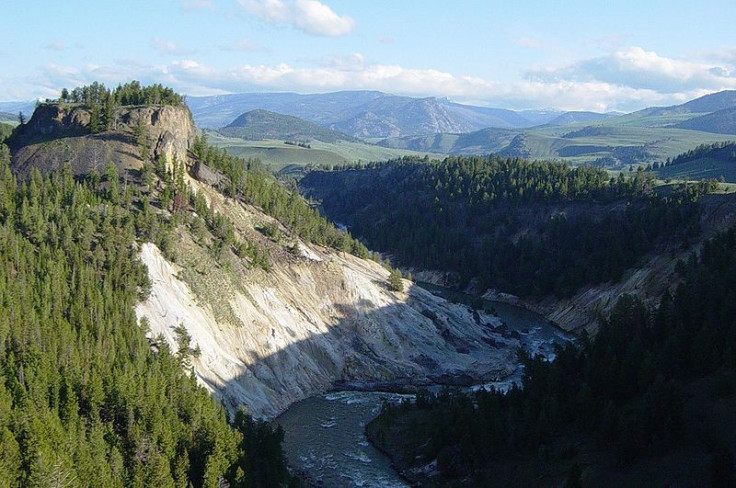Giant Supervolcanoes Buried Mars in Ash Billions of Years Ago

Giant volcanoes buried Mars in ash billions of years ago when the planet was relatively young, a team of scientists has claimed.
The researchers pointed to a series of craters found on the surface of Mars that they said were not formed by meteorites, as popularly believed, but by volcanic eruptions.
Joseph Michalski, a researcher at the Planetary Science Institute in Arizona and the Natural History Museum in London, and his colleague Jacob Bleacher, a volcanologist at Nasa's Goddard Space Flight Centre, said that data from satellites orbiting Mars suggested seismic activity.
Published in the journal Nature, the findings claimed that the supervolcanoes on Mars would be similar to those found in Yellowstone National Park.
Supervolcanic eruptions can produce emissions thousands of times larger than a normal eruption. The impact of a supervolcano eruption is huge. If Yellowstone were to erupt, it would be likely to trigger an ice age, experts say.

Michalski and Bleacher say the supervolcanoes on Mars, located in the Arabia Terra, are irregularly shaped and possess a range of features similar to those seen following eruptions.
"They appear as several huge circular pits that resemble Earth's calderas, in which magma beneath a volcano drains after a volcanic eruption, causing the ground above the magma chamber to collapse," Nature reports.
"I just don't think it's an impact crater," Michalski said. The researchers described three separate calderas that hold possible signs of a solidified lava lake and volcanic vent.
They said the supervolcanoes on Mars would have spewed out enough ash to completely cover Mars in rubble. They believe the volcanoes blasted out ash ferociously during the first billion years of Martian history, and that they played a large role in the early evolution of the red planet.
Michalski and Bleacher wrote: "The discovery of a new type of volcanic construct in the Arabia volcanic province fundamentally changes the picture of ancient volcanism and climate evolution on Mars."
However, there remains debate of the supervolcano theory. Brian Hynek, a planetary geologist at the University of Colorado Boulder, said: "I wouldn't say I'm convinced, but it's certainly a plausible idea worth getting out there."
© Copyright IBTimes 2025. All rights reserved.






















